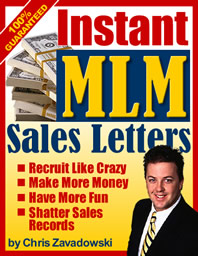 There has never been any argument in advertising circles that the most effective business advertising is word-of-mouth advertising.
There has never been any argument in advertising circles that the most effective business advertising is word-of-mouth advertising.
That’s why direct selling is so dramatically successful as a method of marketing every imaginable product and service, and why direct selling is such a great business in which to be. As a direct salesperson conversationally telling another person why you like a particular product, you are much more convincing advertisement than any TV commercial or magazine ad.
The tremendous persuasiveness of your personal endorsement of a product is what word-of-mouth advertising is all about. Much to the chagrin of professional ad agencies, such word-of-mouth advertising cannot be purchased. But you, as a direct salesperson, can put this special type of advertising power to work for your business.
Because you are fortunate to be on friendly, personal terms with your customers, you can enlist their aid in promoting your services. You can actually turn your present customers into a personal advertising department. All you need to do is master the right way to ask for their help.
Develop Personal Relations
If you learn how to properly ask for their help, your customers will enthusiastically go to work advertising your business. This will help promote your services, lead you to scores of new services, and give you all the valuable benefits of word-of-mouth advertising. There are two types:
- The customer actually becomes an advertising agent and tells others about you and the service you provide.
- The customer gives you referrals to people who may be good prospects and allows you to use their name as an endorsement.
Either type can be extremely valuable in multiplying your customer list.
Avoid Pressure
The most important thing to remember is that this kind of help cannot be bought from your customers. It must never seem like you are offering a bribe in exchange for a list of names. As a rule, people will not “sell” their friends to you. Offering an “inducement” also might raise doubts about the quality of your services. If they are as good as you say they are, why should you bribe people for their recommendations?
Remember two very important things about human nature: first, people usually enjoy telling others about products they try and like. Second, people like to be appreciated. One way they get appreciated is by being helpful to others.
In short, offer an incentive for help without appearing to be paying for it.
Show Appreciation
In this way, you’re thanking the person, not bribing them. They’ll be pleased, won’t feel guilty, and will be more willing the next time you ask.
The next time you call on that customer you should remember to again thank them for their help. Report to them on the reactions of the prospects they suggested. Let the person you know you did call on them, that Mrs. Jones did become a customer and purchased such and such, and that Mrs. Walters was interested but wished to purchase at a later date.
In many cases, after reporting these results, you can obtain a couple of additional prospects from them.
Prospects are the lifeblood of your business. Your greatest asset in direct sales is your inventory of prospective new customers. And there is no better way to maintain that inventory, converting prospects to customers, than by using the power of word-of-mouth advertising …with recommendations from your present, satisfied customers. Put this power to work now and watch your profits and your list of customers multiply.
– By Dan S. Kennedy, serial entrepreneur, from-scratch multi-millionaire, speaker, consultant, coach, author of 13 books including the No B.S. series, and editor of The No B.S. Marketing Letter. FOR A SPECIAL FREE GIFT FROM DAN FOR YOU including newsletters, audio CD’s and more: visit: www.FreeDanKennedyNewsletter.com

 Click Here to Comment
Click Here to Comment
 Just the other day, I was listening to a recording of a speech by Joe Sugarman* and Joe said, “One good path to success is to learn all the proven rules and meticulously follow them. Another path is to occasionally break all the rules, because breakthroughs come only from breaking rules.” Resonates with me; as you know, I wrote a whole book based on breaking rules.
Just the other day, I was listening to a recording of a speech by Joe Sugarman* and Joe said, “One good path to success is to learn all the proven rules and meticulously follow them. Another path is to occasionally break all the rules, because breakthroughs come only from breaking rules.” Resonates with me; as you know, I wrote a whole book based on breaking rules.


Recent Comments